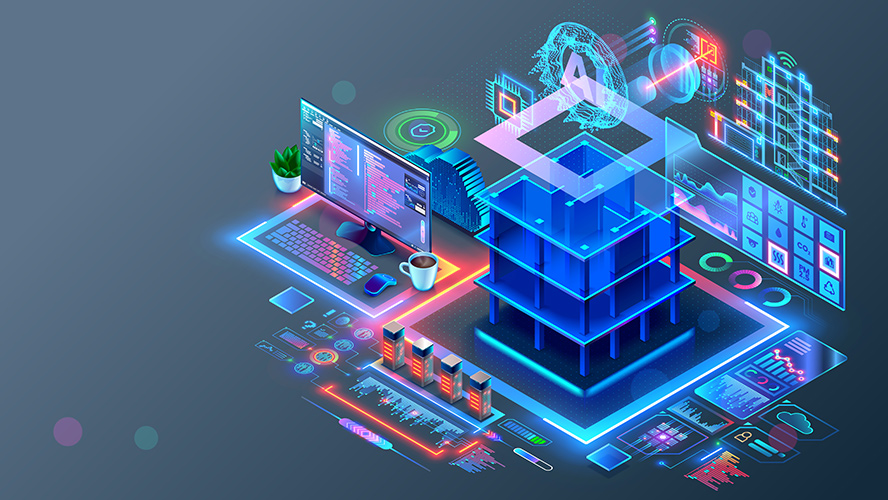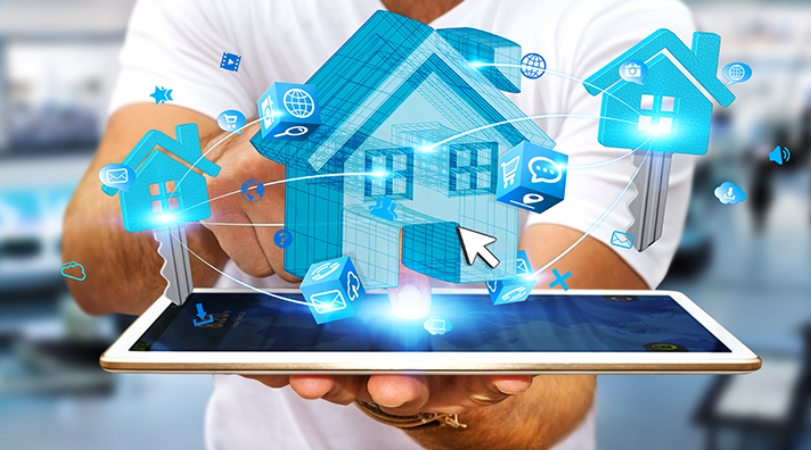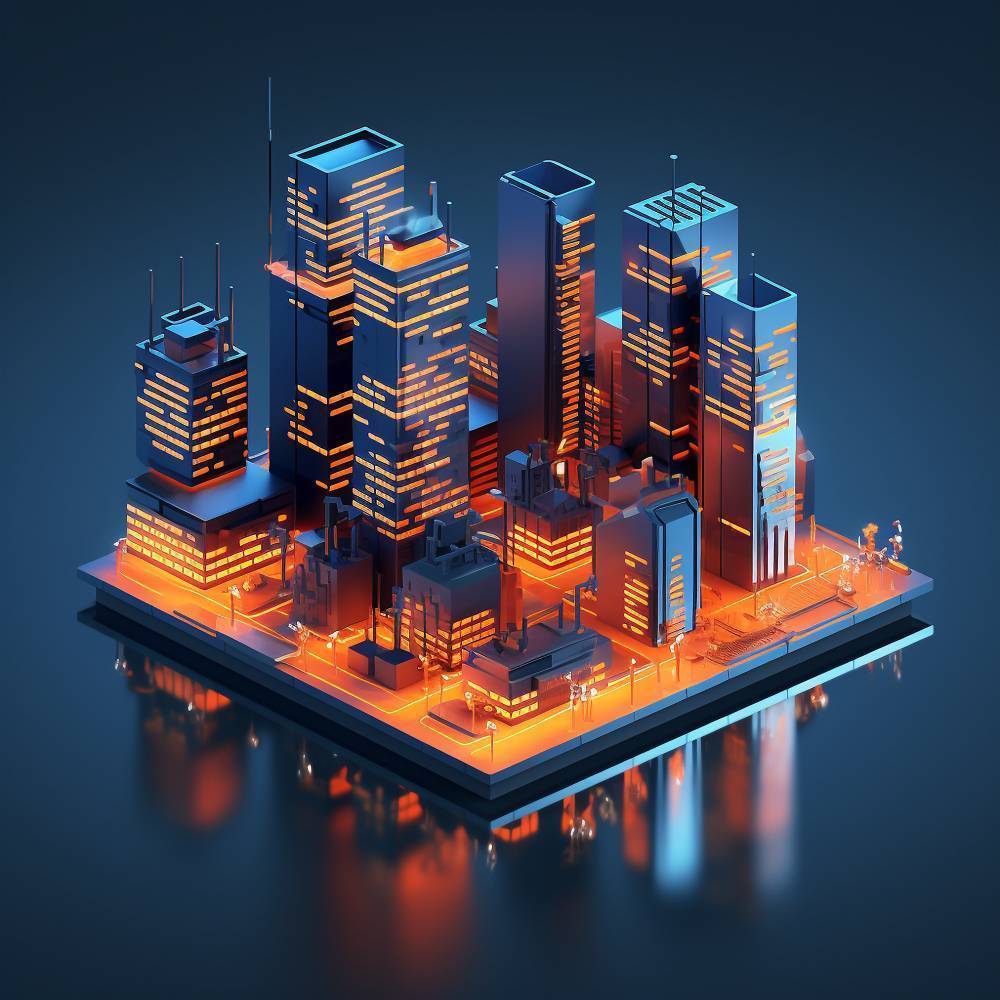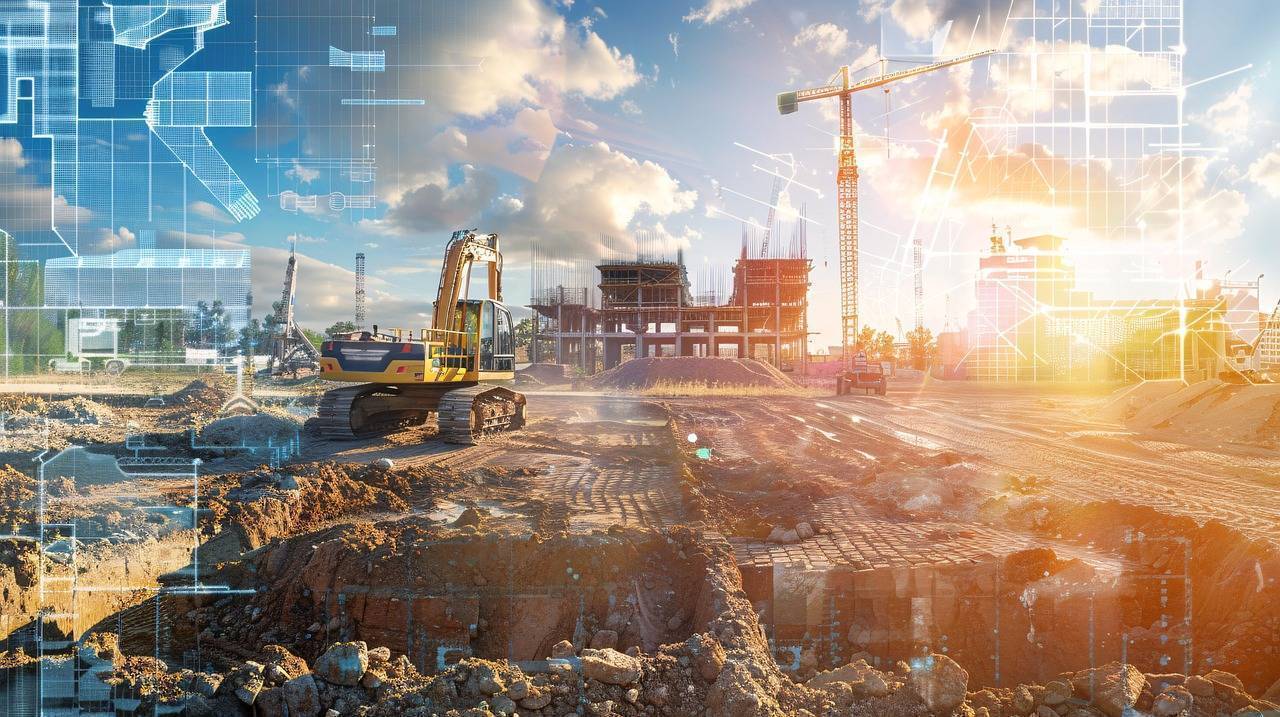In today’s digital age, the role of technology has transformed businesses from a backend enabler to a core division of business strategy in a variety of industries. With the pandemic hastening several organizations’ digital revolution strategies, the Indian real estate industry was no exception. In terms of agility and promptness to adopt the evolving tech-enabled market, the landscape has been exemplary. It has helped drive real estate resilience and safeguards their future growth by stabilizing their existing business.
Demand real estate in India and the role of technology
As per a report from Mordor Intelligence, India's real estate industry is anticipated to reach $265.2 billion in 2023, with projections indicating a substantial growth to $828.75 billion by 2028, reflecting a remarkable CAGR of 25.6%.
The real estate sector in India is expected to reach US$ 1 trillion in market size by 2030, up from US$ 200 billion in 2021 and contribute 13% to the country’s GDP by 2025. Retail, hospitality, and commercial real estate are also growing significantly, providing the much-needed infrastructure for India's growing needs. India’s real estate sector is expected to expand to US$ 5.8 trillion by 2047, contributing 15.5% to the GDP from an existing share of 7.3%.
In FY23, India’s residential property market witnessed the value of home sales reaching an all-time high of Rs. 3.47 lakh crore (US$ 42 billion), marking a robust 48% year-on-year increase. The volume of sales also exhibited a strong growth trajectory, with a 36% rise to 379,095 units sold.
As per ibef report surge in demand for real estate in India is intricately tied to the transformative influence of technology. Online property platforms have democratized access to property listings, enabling potential buyers and investors to peruse a diverse array of options conveniently. With features like high-quality images, detailed descriptions, and virtual tours, these platforms offer immersive experiences that streamline the property search process. Moreover, the integration of virtual reality (VR) and augmented reality (AR) technologies has revolutionized property viewing, allowing individuals to explore properties remotely and visualize spaces in unprecedented detail.
In parallel, the advent of data analytics has empowered stakeholders in the real estate sector with valuable insights into market trends, pricing dynamics, and investment opportunities. This data-driven approach enables developers and investors to make informed decisions, enhancing efficiency and mitigating risks in property transactions. Furthermore, the adoption of digital transactions and online documentation processes has simplified and expedited property transactions, fostering transparency and trust in the real estate market. Combined with the proliferation of smart home technologies and the innovative solutions offered by startups, technology continues to propel the growth and evolution of the Indian real estate landscape.
In regard to the growing adoption of technology, Proptech has emerged as a prominent buzzword in contemporary discussions. Often hailed as the new driving force for innovation and disruption in the real estate sector, it is also seen as a modern solution for real estate professionals grappling with extensive paperwork and a lucrative asset class for investors seeking fresh opportunities.
What Exactly Is Proptech?
Proptech, short for property technology, encompasses the array of technological tools employed by real estate experts to enhance various aspects of property transactions, including buying, selling, researching, marketing, and property management. Referred to by different terms such as Real Estate Tech, Retech, Realtech, and Commercial Real Estate (CRE) Tech, depending on the perspective, proptech fundamentally signifies a robust integration of real estate and technology.
The potential of Proptech in India
As internet penetration and digitization become widespread in emerging (Tier-II and Tier-III) cities, Proptech exhibits significant potential for unlocking real estate opportunities in both rural and urban areas, fostering holistic localized growth. In India, Proptech startups constitute over 6% of the total recognized startups. Globally, the country ranks fourth in terms of total funding raised, accumulating approximately USD 89.1 million across sixty-six funding rounds. Noteworthy players in this industry include 99acres, Magicbricks, and Nobroker, platforms where buyers, sellers, and agents can seamlessly collaborate and exchange real estate information.
Several emerging trends are poised to drive the sector's anticipated growth, including the rapid rise of co-working and co-living spaces, the increasing influence of social media, advancements in blockchain, machine learning, and artificial intelligence (AI), as well as disruptions in construction methods and materials.
Various schemes and missions by the Ministry of Housing and Urban Affairs (MOHUA) aim to propel growth in the sector and support the Make in India initiative. The Pradhan Mantri Awas Yojana – Urban (PMAY-U), launched to address urban housing shortages, particularly among the Economically Weaker Section (EWS), Lower Income Group (LIG), and Middle-Income Group (MIG), includes the Housing Technology Sub-Mission (TSM) to promote modern, green, and disaster-resilient technologies. In 2021, the scheme organized the Indian Housing Technology Mela (IHTM) to showcase indigenous and innovative building materials, also establishing five incubators to support potential future technologies in the Indian Real Estate market.
Different types of Proptech solutions

1. Smart Home Technology: Smart home technology revolutionizes the way we interact with our living spaces. It involves the integration of devices and systems that enhance security, energy efficiency, and convenience. From smart thermostats and lighting to connected security systems, these technologies allow homeowners to control and monitor their homes remotely, creating a more comfortable and secure living environment.
2. Property Management Software: Property management software simplifies and streamlines various tasks for property managers. It encompasses tools for lease management, rent collection, maintenance tracking, and communication with tenants. This technology improves efficiency, reduces paperwork, and provides real-time insights into property performance, enabling more effective decision-making for property managers.
3. Virtual and Augmented Reality: Virtual and augmented reality technologies have transformed the real estate industry by offering immersive experiences. Virtual property tours enable prospective buyers or tenants to explore properties remotely, while augmented reality visualizations enhance on-site experiences. These technologies aid in marketing properties, saving time for both clients and real estate professionals.
4. Blockchain in Real Estate: Blockchain technology brings transparency, security, and efficiency to real estate transactions. By utilizing a decentralized and tamper-proof ledger, blockchain ensures the integrity of property records, reducing fraud and simplifying the transfer of property ownership. This innovation has the potential to streamline the entire real estate lifecycle, from property listings to the final transaction.
5. Online Real Estate Marketplaces: Online real estate marketplaces have transformed the property search and transaction process. Platforms connect buyers, sellers, and renters, offering a centralized space to list, discover, and transact properties. These marketplaces provide comprehensive information, images, and sometimes virtual tours, making it easier for individuals to find their ideal homes or investment opportunities.
6. Data Analytics and Predictive Modelling: Data analytics and predictive modelling play a crucial role in real estate decision-making. By analysing vast amounts of data, these technologies provide insights into market trends, property values, and investment opportunities. Investors and real estate professionals use this information to make informed decisions, mitigate risks, and optimize their portfolios.
7. Construction Technology (ConTech):Construction technology, or ConTech, integrates innovative solutions into the construction process. This includes advancements such as 3D printing, robotics, and drones. These technologies enhance efficiency, reduce costs, and improve safety in construction projects, ultimately influencing the quality and speed of building development.
8. Energy Management Solutions: Energy management solutions focus on sustainable practices within real estate. This includes monitoring and optimizing energy consumption, integrating renewable energy sources, and implementing smart systems for energy-efficient buildings. These technologies contribute to environmentally friendly practices and cost savings for property owners and occupants.
9. Tenant Experience Platforms: Tenant experience platforms leverage technology to enhance the interaction between property managers and tenants. Through dedicated apps, tenants can easily submit maintenance requests, receive important updates, and engage with community features. These platforms aim to improve overall satisfaction and communication within rental properties.
10. Facility Management Software: Facility management software assists in efficiently managing and maintaining physical assets within a property or portfolio. It includes tools for maintenance scheduling, equipment tracking, and space utilization analysis. This technology helps property owners and facility managers optimize resources, reduce downtime, and ensure the smooth operation of buildings and facilities.
Why the demand for Proptech?
The demand for proptech is driven by several factors that address longstanding challenges and capitalize on opportunities within the real estate industry. Here are key reasons contributing to the growing demand for proptech:

1. Efficiency and Streamlined Processes: Proptech solutions automate and streamline various real estate processes, including property management, leasing, and transaction facilitation. This efficiency leads to time savings, reduced manual efforts, and improved overall operational effectiveness.
2. Enhanced User Experience:Proptech enhances the user experience for all stakeholders, from buyers and sellers to tenants and real estate professionals. Virtual property tours, online marketplaces, and tenant experience platforms contribute to a more convenient and user-friendly real estate ecosystem.
3. Increased Transparency and Security: Technologies like blockchain bring transparency and security to real estate transactions by providing tamper-proof and decentralized ledgers for property records. This addresses concerns related to fraud and lack of trust in traditional transaction processes.
4. Data-Driven Decision-Making: Proptech leverages data analytics and predictive modelling, providing valuable insights into market trends, investment opportunities, and risk assessment. This data-driven approach empowers real estate professionals and investors to make informed decisions.
5. Accessibility to Real Estate Investments: Real estate crowdfunding platforms, a subset of proptech, democratise access to real estate investments. Smaller investors can participate in projects with lower capital contributions, broadening the investor base and increasing liquidity in the real estate market.
6. Innovation in Construction Practices: Construction technology (ConTech) within proptech introduces innovative solutions such as 3D printing, Building Information Modeling (BIM), and robotics. These technologies improve construction efficiency, reduce costs, and enhance the quality of project outcomes.
7. Sustainability and Energy Efficiency: Proptech solutions focus on sustainable practices within the real estate sector, including energy management, renewable energy integration, and environmentally friendly building technologies. This aligns with the growing emphasis on sustainability in the real estate industry.
8. Market Accessibility and Globalization: Online real estate platforms and digital solutions facilitate global market accessibility. Investors and buyers can explore properties and investment opportunities beyond geographical boundaries, contributing to increased market globalization.
9. Government Initiatives and Digital Transformation: Governments are increasingly embracing digital transformation in the real estate sector. Initiatives to digitize land records, improve property registration processes, and promote technology adoption contribute to the demand for proptech.
10. Smart Home Trends: The rise of smart home technology, a part of proptech, is driven by consumer demand for connected and convenient living spaces. Homeowners seek automation, security features, and energy efficiency, leading to increased adoption of smart home solutions.
Proptech advantages for Stakeholders
Stakeholders in real estate stand to gain in various ways from the adoption and integration of proptech (property technology). Here are some benefits for different stakeholders:

1. Buyers and Tenants:
- Efficient Property Search: Proptech provides online marketplaces with advanced search features, making it easier for buyers and tenants to find properties that match their criteria.
- Virtual Tours: Virtual and augmented reality technologies enable immersive virtual property tours, saving time and allowing remote exploration of potential homes.
2. Sellers and Landlords:
- Enhanced Marketing: Online platforms and smart home technologies can be leveraged for more effective property marketing, attracting a larger pool of potential buyers or renters.
- Streamlined Transactions: Blockchain in real estate helps ensure secure and transparent transactions, reducing fraud risks and providing a smoother selling or leasing process.
3. Real Estate Agents and Brokers:
- Increased Efficiency: Property management software and CRM systems streamline administrative tasks, allowing agents to focus more on client interactions and deal-making.
- Data Analytics: Access to data analytics provides valuable insights into market trends, helping agents make more informed recommendations to clients.
4. Property Managers:
- Automated Processes: Proptech automates routine tasks such as rent collection, maintenance tracking, and lease management, improving overall operational efficiency.
- Tenant Experience Platforms: Apps and platforms enhance communication with tenants, allowing for quicker response to maintenance requests and providing a better overall tenant experience.
5. Investors:
- Data-Driven Decision-Making: Data analytics and predictive modeling assist investors in analyzing market trends, assessing risks, and making informed investment decisions.
- Real Estate Crowdfunding: Proptech platforms enable smaller investors to participate in real estate projects through crowdfunding, diversifying investment portfolios.
6. Builders and Developers:
- Construction Technology (ConTech): Incorporating ConTech solutions enhances construction processes, improving efficiency, reducing costs, and ensuring higher quality in project outcomes.
- Digital Project Management: Digital tools and platforms facilitate more effective project management, from planning and design to construction and delivery.
7. Government and Regulatory Bodies:
- Transparency and Compliance: Blockchain technology ensures transparent and secure property transactions, helping governments reduce fraud and enhance transparency in land records and property ownership.
- Urban Planning: Proptech tools can assist in urban planning by providing insights into population trends, infrastructure needs, and overall development requirements.
Proptech benefits stakeholders by improving efficiency, enhancing user experiences, providing valuable insights through data analytics, and contributing to a more transparent and secure real estate ecosystem. The gains vary for each stakeholder group, but collectively, these advancements contribute to a more modern and responsive real estate industry.
Conclusion
The transformative impact of proptech on the real estate industry is undeniable. As technology continues to evolve, proptech innovations are reshaping the way we buy, sell, manage, and experience properties. As we move forward, the proptech revolution is likely to intensify.
However, challenges such as data security, regulatory considerations, and the need for widespread adoption still persist. Overcoming these hurdles will be crucial for proptech to reach its full potential and ensure a seamless integration into the broader real estate ecosystem.
In the end, the fusion of real estate and technology holds immense promise, offering a future where transactions are more transparent, processes are more efficient, and properties are not just spaces but interconnected, intelligent hubs. Proptech is not merely a trend but a transformative force, reshaping the foundations of an industry that plays a pivotal role in our daily lives.









.png)